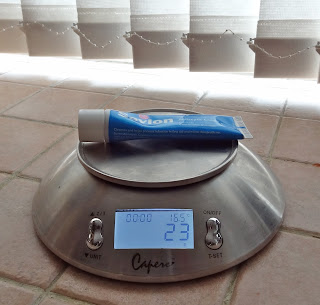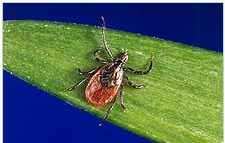For years, Mrs. S. suffered from joint pain and headaches. After an odyssey through doctors’ waiting rooms, one doctor diagnosed Lyme borreliosis – an infectious disease transmitted by ticks. With its bite, the parasite introduced bacteria that then spread throughout the entire body. Mrs. S. is not alone – very often, the disease is recognized too late or not at all, or is not properly treated. Doctors are provided with no clues if the characteristic redness around the bite area is missing. Left untreated, Lyme borreliosis can cause symptoms that resemble rheumatism, damage joints, muscles and nerves and affect the organs.
If found in time, it can be successfully treated. If patients exhibit the disease-specific rash known as erythema migrans, doctors will prescribe antibiotics for several weeks. However, if, as in the case of Mrs. S., the disease has progressed far and is chronic, it is very difficult to treat. Currently, there is no prophylactic treatment and no vaccine against the infection. In the future, a new type of gel is supposed to nip the infection in the bud: the patient applies it locally immediately after the tick‘s bite. Researchers of the Fraunhofer Institute for Cell Therapy and Immunology IZI in Leipzig developed the medication in close cooperation with the Swiss company Ixodes AG and the Institute for Infectious Diseases and Zoonoses of the Ludwig-Maximilian University in Munich (Institut für Infektionsmedizin und Zoonosen der LMU München). Ixodes AG is responsible for developing the formula, while IZI and LMU are carrying out the pre-clinical studies and the serological examinations.
If the gel is applied immediately to the bite after the tick has been removed and one does not wait for any potential symptoms to show, Lyme borreliosis could be prevented. This is because during the first few days, the bacteria stay right around the spot where the tick bite occurred and spread out only after that. The active ingredient of the gel is azithromycin, which is highly effective against borrelia bacteria and kills them locally in the skin,“ says Dr. Jens Knauer, project manager at IZI. Unlike other antibiotics, there is no known resistance of borrelia strains against azithromycin. Another advantage of the active ingredient: it has few side effects and as a result does not stress the body. It also distinguishes itself by its good depot action of up to five days in the tissue. The treatment is successful only if the medication is applied within the first few days after the tick‘s bite. „This gel, however, cannot be used to treat an established infection; it is suitable only for prophylaxis,“ emphasizes Dr. Knauer.
The pre-clinical studies have already been completed successfully; in mice, the gel was effective even five days after a tick‘s bite. The application has been patented. Starting this past summer, in a clinical phase III study (www.zeckenstudie.com), the researchers are testing the medication on persons with proven tick bites. Should the results of the pre-clinical studies be confirmed on humans, the gel will help to significantly lower the number of new infections,“ the expert adds. Annually, up to 60,000 are stricken with Lyme borreliosis in Germany alone, according to estimates by the Robert Koch Institute, with an upward trend – since, due to climate change, ticks are expanding their range ever further. „As soon as the gel can be purchased at the pharmacy, persons who are particularly endangered, such as forest rangers, hunters, joggers or soccer players, should always carry it with them,“ Knauer recommends.
Although this jell hasn’t made it to the chemist/pharmacy yet. Keep it in the back of your minds for the near future. I have been lucky, only one tick has made it into my skin but this jell would have given me some peace of mind once i had removed it.
In the meantime take some Permethrin with you when walking in tick country just to minimise the possibility of a bite.
Hope you find this useful.
(Report from the Institutes media.)
Amendment 1. added 8.50pm 3/4/12. following Maria's comment.
TBE Vaccination In the UK
You cannot get the TBE vaccine on the NHS. Your doctor may be able to order it in for you from a specialised travel clinic, but you will still have to pay for the course of vaccine. You may prefer to go directly to your local travel health clinic.
The best time to start a course of TBE vaccination is during the winter months to make sure you are protected before the start of the tick season in spring.
Vaccination course
The TBE vaccine is usually given in three doses, with the second dose given one to three months after the first dose, and the third dose given five and 12 months after the second dose.
If you need more urgent protection, two doses of the vaccine can be given at least two weeks apart. In this case, the third dose should be given five to 12 months after the second dose.
If you are under 60, you should have your first booster three years after your original course of the vaccine. Further boosters should be given every three to five years.
If you are over 60, you should have booster doses every three years. This is because studies have shown that TBE immunity (resistance) does not last as long in older people.
Side effects
Any reactions to the TBE vaccination are usually mild and do not last long.
Adults may experience swelling, redness and pain at the site of the injection. Other possible side effects include tiredness, headache, muscle pain and nausea.
Children usually experience mild side effects such as pain and tenderness at the site of injection, restlessness and headache. They may also experience a fever (temperature of 38C (100.4F) or above) after their first dose of the vaccine. In very rare cases, a more serious reaction can cause meningitis.
Precautions
You should not have the vaccination if:
- You are allergic to eggs (as the vaccine contains egg protein).
- You have a fever.
You must also tell your doctor or nurse if any of the following apply to you:
- You have problems with your immune system.
- You have a brain disorder.
- You are pregnant.
- You are breastfeeding.
You may still be advised to have the vaccine, but your doctor or nurse will need to check your risk with a travel medicine specialist before giving it to you.
Amendment 2. Added 10.32 6/4/12
I made enquiries at Boots and Nomad travel yesterday and was stunned.
Nomad travel. First have a consultation with a nurse at Nomad. Cost £20.
No need to go to your GP. No prescription needed.
3 shots required. First shot £55
2nd shot within 3 months of the 1st. Cost £55
Then a booster shot 6 - 12 months later cost £55.
Boots.
They told me that they would do the vaccination but only with a prescription from my GP.
But, they said that almost all GP’s would do the vaccination at the surgery and therefore would not need to pay a nurse like you would at Boots.
You will probably (i think you will) have to pay for the serum.
That’s quite a fair response from Boots.
GP next then.









































